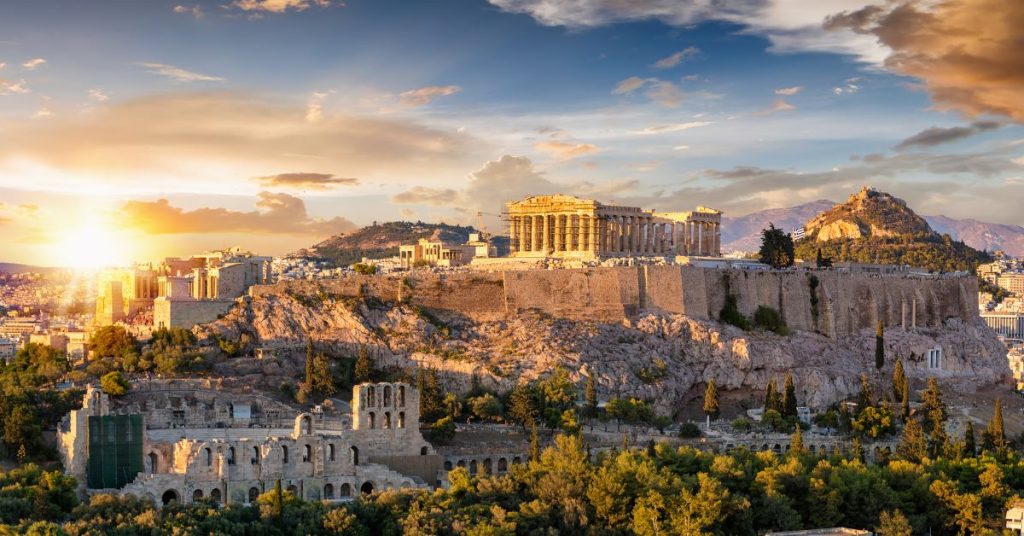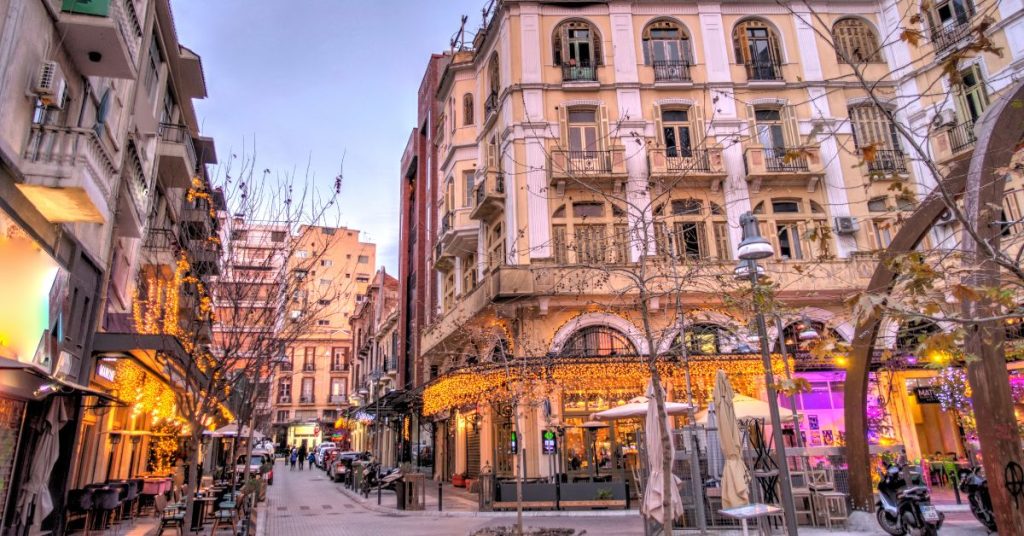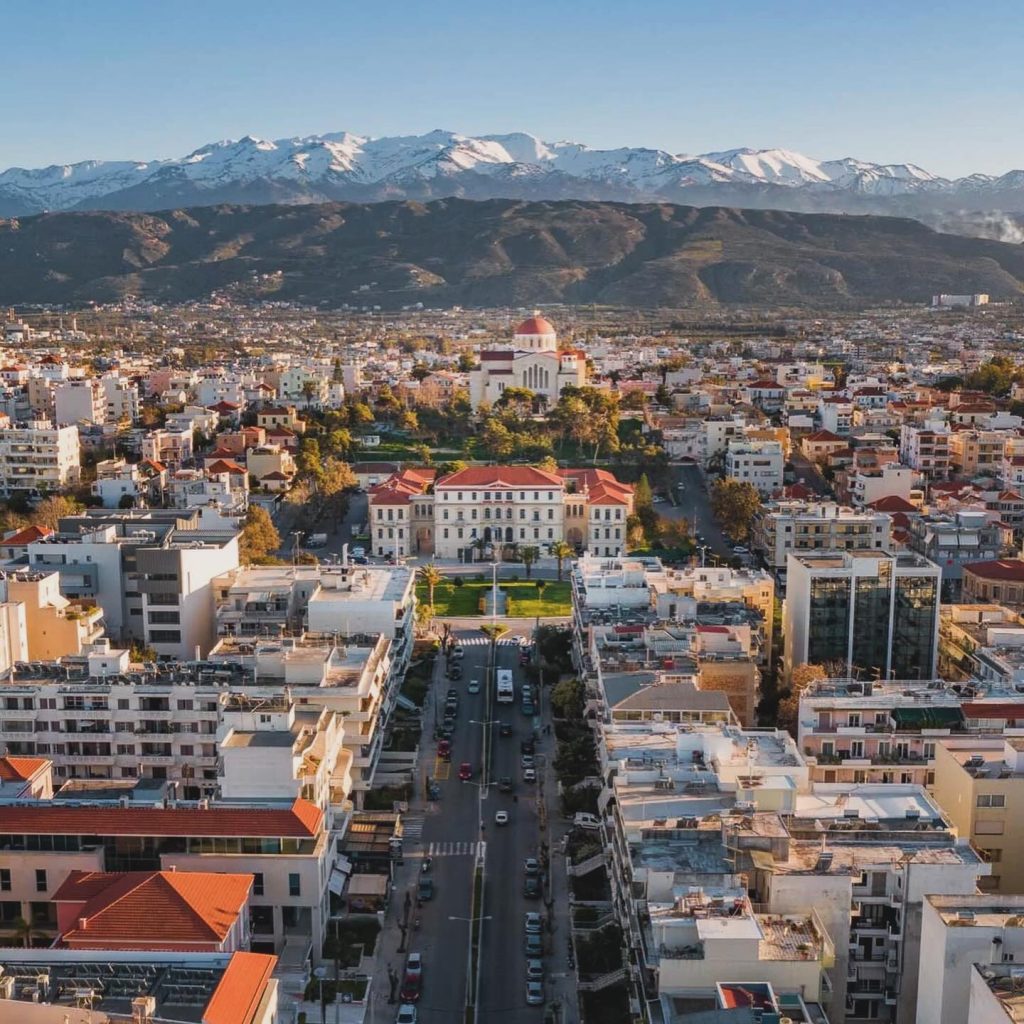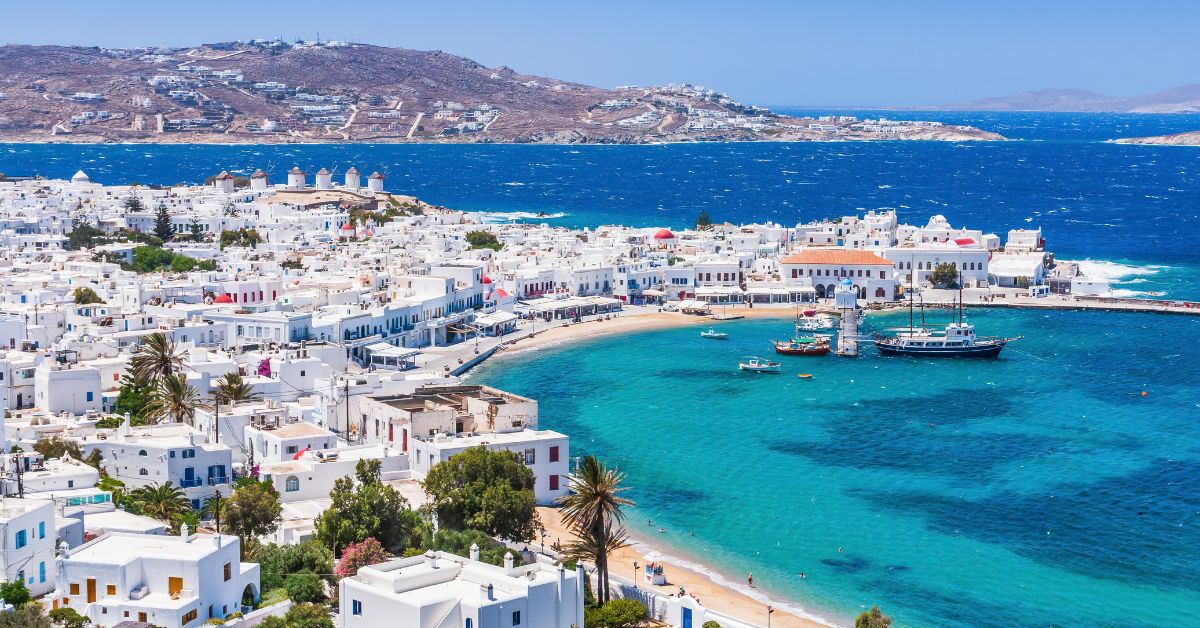Greece, with its ancient ruins, azure seas, and vibrant culture, is a dream destination for many travelers. From the iconic Parthenon in Athens to the stunning sunsets over Santorini, it’s easy to be captivated by the country’s postcard-perfect attractions. Yet, while the typical tourist itinerary might cover the major highlights, there’s a whole other side to Greece that remains largely undiscovered. This side is where you’ll find the real Greece—where locals go, how they live, and the hidden gems they cherish.
Imagine strolling through charming alleyways where the scent of fresh bread wafts from local bakeries, or sharing a laugh with new friends at a bustling market. Picture yourself savoring a meal prepared by a grandmother who’s been perfecting her recipes for decades. This is the essence of traveling Greece like a local. It’s about stepping off the beaten path and diving into a more authentic experience of Greek life.
In this guide, we’ll uncover the secrets that the glossy travel brochures often miss. From understanding Greek culture and exploring lesser-known cities to navigating transportation and dining like a true local, we’ll cover everything you need to know to make your Greek adventure unforgettable. So, pack your bags, leave the tourist traps behind, and get ready to experience Greece in a way that few ever do.
1. Understanding Greek Culture
History and Traditions
Greece’s rich tapestry of history and tradition is woven into the fabric of everyday life. From ancient monuments to modern customs, understanding this cultural backdrop will enrich your travel experience. Begin by immersing yourself in the history that shaped the nation. Visit sites like the Acropolis Museum in Athens, which offers a comprehensive look at Greece’s ancient heritage. Engage with local traditions by attending a festival or participating in a traditional Greek dance.
- Historical Sites to Visit:
- Athens: The Acropolis, Ancient Agora, and the Temple of Olympian Zeus.
- Delphi: The ancient oracle and theater.
- Crete: The Minoan palace of Knossos.
Social Norms
Greece is a nation known for its hospitality and warmth. As you navigate through local interactions, a few social norms will help you blend in seamlessly:
- Greetings: A friendly handshake or a kiss on both cheeks is common.
- Punctuality: Greeks are generally relaxed about time, so don’t worry if you’re a bit late.
- Dining Etiquette: It’s customary to wait until everyone is served before starting your meal.
Understanding these small nuances will not only make your interactions smoother but also show respect for local customs.
Language Basics
While many Greeks speak English, especially in tourist areas, learning a few Greek phrases can make a big difference. Locals appreciate when visitors make an effort to speak their language. Here are some basic phrases to get you started:
- Hello: Γειά σας (Yia sas)
- Thank you: Ευχαριστώ (Efcharistó)
- Please: Παρακαλώ (Parakaló)
- How much does this cost?: Πόσο κοστίζει αυτό; (Póso kostízei aftó?)
Having these phrases at your disposal will not only help you in everyday interactions but also endear you to the locals.
2. Exploring Greek Cities Like a Local
Athens

Athens, the heart of ancient Greece, is more than just the Parthenon and the Acropolis. To experience the city like a local, delve into its vibrant neighborhoods:
- Plaka: Known as the “Neighborhood of the Gods,” Plaka is a charming maze of narrow streets lined with traditional tavernas and shops. It’s an ideal spot to enjoy a coffee and people-watch.
- Monastiraki: Famous for its bustling flea market, Monastiraki offers an eclectic mix of shops and street food. Don’t miss the opportunity to try some local delicacies at one of the many food stalls.
- Psiri: This area is known for its lively nightlife and trendy bars. It’s a great place to enjoy an evening out and experience the local music scene.
Thessaloniki

Thessaloniki, Greece’s second-largest city, is a melting pot of cultures with a vibrant food scene and rich history:
- Ladadika: A historic district turned nightlife hotspot, Ladadika is perfect for sampling local cuisine and enjoying a drink. The area is filled with colorful buildings and lively restaurants.
- Ano Poli: The old town of Thessaloniki, Ano Poli offers a glimpse into the city’s past with its preserved Ottoman-era architecture and stunning views. Explore the traditional houses and narrow streets.
- Local Delicacies: Try the local specialties like gyro and bougatsa (a sweet pastry filled with custard or cheese). Thessaloniki is known for its food, so indulge in the city’s culinary delights.
Chania (Crete)

Chania, on the island of Crete, offers a blend of Venetian, Turkish, and Greek influences:
- Venetian Harbor: Stroll along the picturesque harbor, lined with colorful buildings and charming cafes. It’s the perfect place for a leisurely evening walk.
- Local Bakeries: Visit traditional bakeries for freshly baked bread and pastries. Cretans are proud of their baking traditions, and you’ll find some delightful treats.
- Local Guides: Engage with local guides for an authentic experience of Crete. They can provide insider tips on hidden beaches and local attractions.
3. Venturing Beyond the Tourist Spots
Hidden Islands
Greece is dotted with islands beyond the well-trodden paths of Mykonos and Santorini. Consider these lesser-known islands for a more local experience:
- Tinos: Famous for its beautiful landscapes and traditional villages. Tinos is less touristy and offers a genuine Greek island experience.
- Hydra: A car-free island with charming stone houses and a relaxed atmosphere. Hydra is perfect for a peaceful retreat.
Rural Greece
To escape the crowds, head to the countryside. The Peloponnese region is a great place to explore:
- Mistras: A medieval fortress town with well-preserved ruins and stunning views.
- Nafplio: A picturesque town with a rich history, beautiful architecture, and great local food.
Local Events
Participate in local festivals and events to immerse yourself in Greek culture:
- Easter Celebrations: Greek Easter is a major holiday with unique traditions and festivities.
- Local Fairs: Check out regional fairs and festivals for a taste of local culture and cuisine.
4. Navigating Transportation

Public Transportation
Greece offers a range of public transportation options, but knowing how to navigate them can make your trip smoother:
- Buses: Intercity buses (KTEL) are a reliable way to travel between cities and islands. Local buses in cities like Athens and Thessaloniki are efficient for getting around.
- Trains: Greece has a limited train network, but it’s a comfortable way to travel between major cities.
- Ferries: Ferries are essential for island hopping. Book tickets in advance, especially during peak tourist season.
Driving in Greece
Renting a car gives you the freedom to explore remote areas:
- Road Conditions: Greek roads vary from well-maintained highways to narrow village lanes. Be prepared for occasional rough patches.
- Driving Etiquette: Greeks drive assertively. Keep an eye on local driving habits and be cautious, especially in busy urban areas.
Cycling and Walking
For a more leisurely pace, consider cycling or walking:
- Cycling Routes: Many cities and islands offer bike rental services and dedicated bike lanes.
- Walking Tours: Explore cities and towns on foot to discover hidden gems and local neighborhoods.
5. Dining Like a Local

Traditional Cuisine
Greek cuisine is diverse and flavorful. Here are some must-try dishes:
- Moussaka: A layered dish with eggplant, minced meat, and béchamel sauce.
- Souvlaki: Skewers of grilled meat, often served with pita and tzatziki.
- Baklava: A sweet pastry made of layers of filo dough and honey.
Dining Etiquette
Dining in Greece is a social affair. Follow these tips for a local experience:
- Wait for Everyone: Wait until everyone is served before starting your meal.
- Sharing is Caring: Greek meals are often shared. Be prepared to try a bit of everything.
Finding Authentic Restaurants
Avoid tourist traps by following these tips:
- Ask Locals: Seek recommendations from locals for authentic dining experiences.
- Look for Busy Places: Restaurants filled with locals are usually a good sign.
6. Shopping Like a Local
Local Markets
Markets are the heart of Greek shopping:
- Athens Central Market: A bustling market offering fresh produce, meats, and cheeses.
- Chania Market: Located in the old town, this market sells everything from local crafts to fresh foods.
Crafts and Souvenirs
For authentic souvenirs:
- Olive Oil: Greece produces some of the best olive oil in the world. Look for local brands.
- Ceramics: Hand-painted pottery makes for a unique and practical souvenir.
Bargaining Tips
While bargaining isn’t common in all stores, it’s acceptable in markets:
- Be Polite: Approach bargaining with a friendly attitude.
- Start Low: Begin with a lower offer and be prepared to negotiate.
7. Experiencing Greek Nightlife
Local Bars and Clubs
Greek nightlife is lively and varied:
- Athens: Explore neighborhoods like Gazi and Kolonaki for trendy bars and nightclubs.
- Thessaloniki: Known for its vibrant nightlife, try areas like Ladadika for a great night out.
Traditional Music and Dance
Immerse yourself in Greek music and dance:
- Live Music Venues: Attend a performance of traditional Greek music.
- Dance: Participate in local dance events to experience traditional Greek folk dances.
Local Festivals
Experience Greece’s cultural festivities:
- The Athens and Epidaurus Festival: Features a range of performances from ancient Greek drama to modern music.
- Local Village Festivals: Enjoy local traditions, music, and food.
8. Engaging with Locals
Making Connections
Building relationships with locals enhances your travel experience:
- Be Friendly: Approach conversations with a warm and open attitude.
- Participate in Local Activities: Join community events or workshops to meet locals.
Understanding Local Hospitality
Greece is known for its hospitality, or “philoxenia”:
- Respect and Gratitude: Show appreciation for the hospitality you receive.
- Reciprocate: Offer a gesture of kindness in return if possible.
Participating in Community Activities
Engage in local experiences:
- Cooking Classes: Learn how to make traditional Greek dishes from local chefs.
- Artisan Workshops: Try your hand at local crafts and arts.
9. Traveling Responsibly
Respect for Local Customs
Respecting local customs ensures a positive experience:
- Dress Modestly: Especially when visiting religious sites.
- Follow Local Practices: Observe and adapt to local behaviors and practices.
Environmental Considerations
Travel responsibly to preserve Greece’s natural beauty:
- Waste Management: Dispose of trash properly and recycle where possible.
- Protect Natural Sites: Avoid disturbing wildlife and respect natural habitats.
Supporting Local Economy
Contribute positively to local communities:
- Shop Local: Buy from local businesses and artisans.
- Eat Local: Dine at family-owned restaurants and try local products.
10. Safety and Practical Tips
Health and Safety
Stay healthy and safe during your travels:
- Travel Insurance: Obtain insurance that covers health issues and emergencies.
- Stay Hydrated: Greece can be hot, so drink plenty of water and stay cool.
Emergency Contacts
Know key contact information:
- Emergency Number: 112 is the universal emergency number.
- Local Hospitals: Familiarize yourself with nearby medical facilities.
Money Matters
Handle currency and budgeting effectively:
- Currency: The Euro (€) is the official currency. Have some cash on hand for small purchases.
- Tipping: Tipping is not obligatory but appreciated. Around 5-10% is a good guide.
Conclusion
Traveling Greece like a local offers a richer, more immersive experience than sticking to the usual tourist routes. By embracing the culture, exploring hidden gems, and engaging with locals, you’ll uncover a side of Greece that many visitors miss. From savoring authentic Greek cuisine and discovering charming neighborhoods to participating in local traditions and supporting community businesses, your journey will be filled with unforgettable moments.
So, as you plan your Greek adventure, remember that the essence of traveling like a local lies in your willingness to explore beyond the surface and truly connect with the people and places you encounter.

